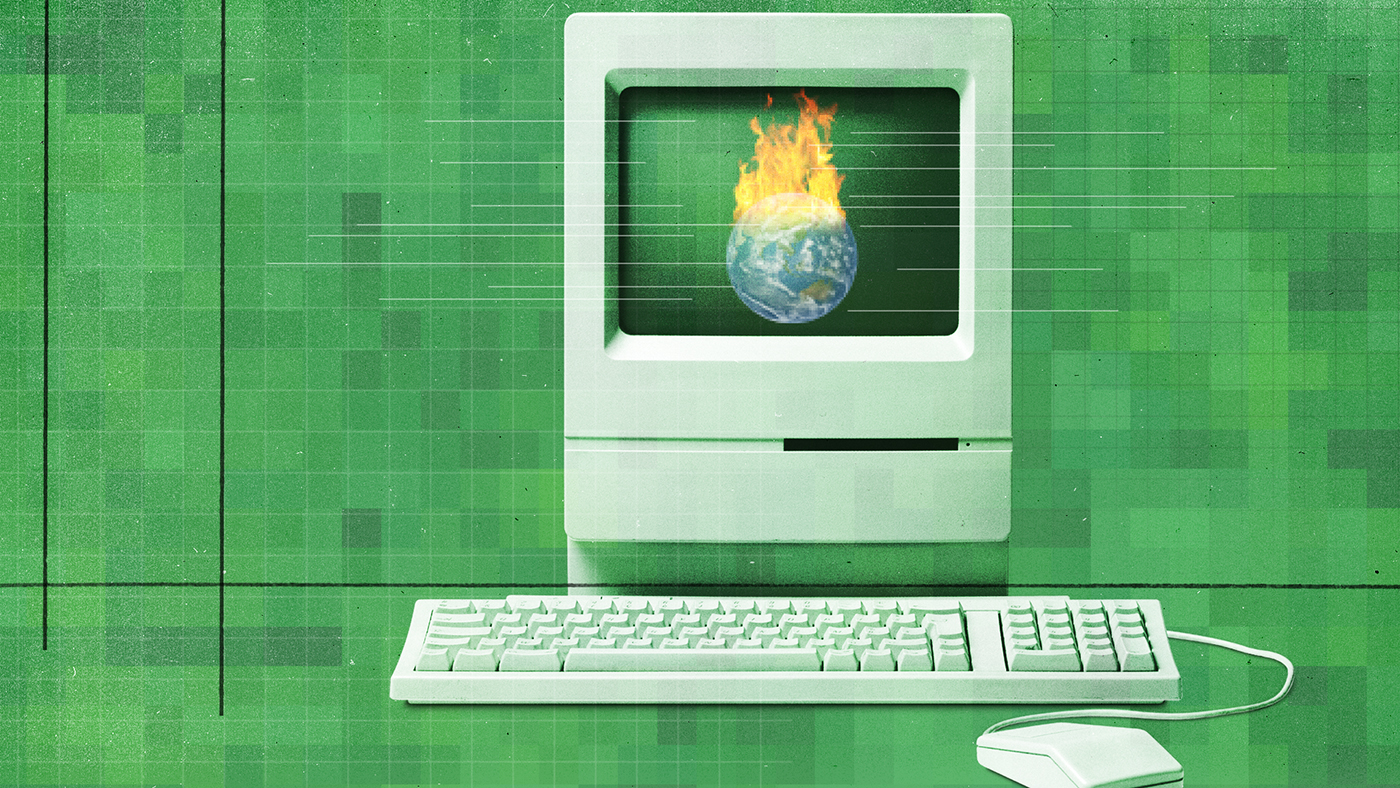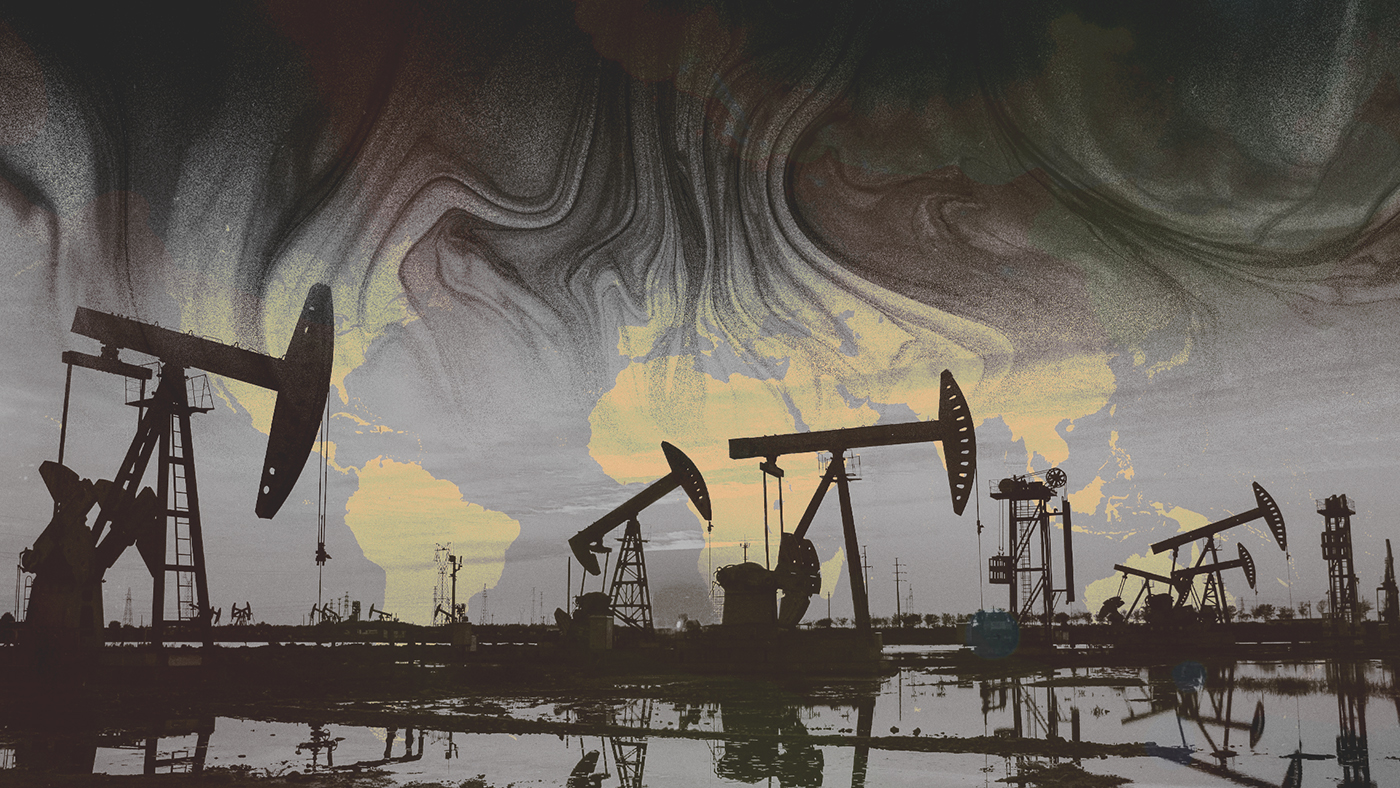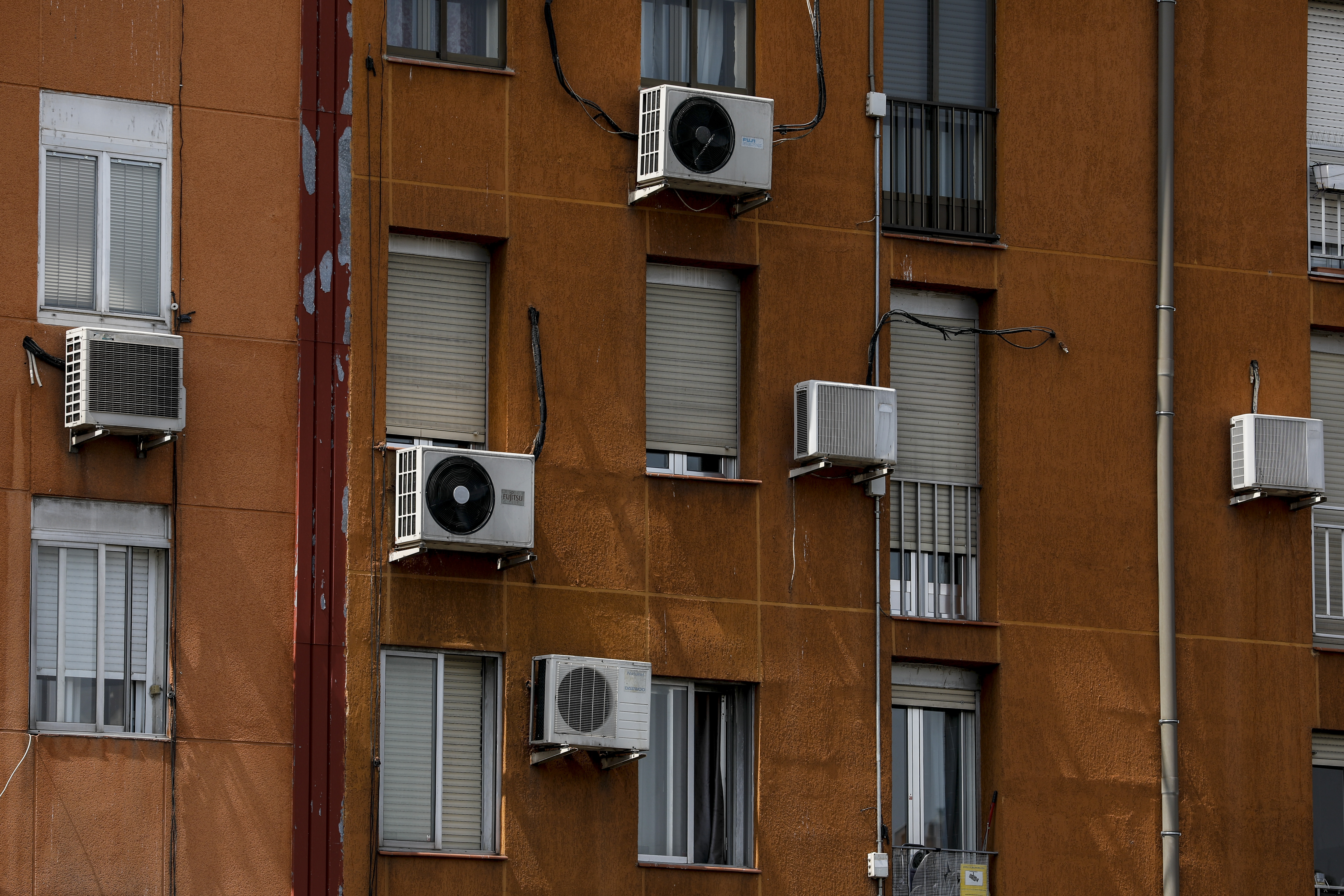Can AI help or hinder the fight against climate change?
Artificial intelligence is a double-edged sword in this crisis


A free daily email with the biggest news stories of the day – and the best features from TheWeek.com
You are now subscribed
Your newsletter sign-up was successful
Artificial intelligence is a growing topic of controversy, with its creators themselves warning that the technology will lead to humanity's "extinction." It's creeping into several industries while many countries are passing regulations on its use. And the advancement of AI raises questions about whether the technology will be needed to fight the climate crisis.
Despite concerns, some companies like Google believe AI could be incredibly useful in solving the world's problems. "AI is a powerful technology that will transform our future," Google DeepMind stated, adding that it can be used to "advance our understanding, optimize existing systems, and accelerate breakthrough science of climate and its effects."
Others believe AI may hinder the cause more than help it, citing energy issues, accuracy issues, and the potential for it to end up in the wrong hands. "If you're now only having this technology that's more accessible to actors in society that are more powerful, it potentially exacerbates gaps," Priya Donti, the co-founder and executive director of the nonprofit Climate Change AI, explained to Insider.
The Week
Escape your echo chamber. Get the facts behind the news, plus analysis from multiple perspectives.

Sign up for The Week's Free Newsletters
From our morning news briefing to a weekly Good News Newsletter, get the best of The Week delivered directly to your inbox.
From our morning news briefing to a weekly Good News Newsletter, get the best of The Week delivered directly to your inbox.
It could make things worse
"AI requires vast computing power, which churns through energy when designing algorithms and training models," wrote Francesco Ricciuti for VentureBeat. "Computing goes hand-in-hand with high energy costs and a larger carbon footprint, which tap the accelerator pedal on the world's climate change." In addition, the amount of power that AI uses globally has been steadily increasing as time goes on. An analysis by OpenAI in 2018 found that the "amount of compute used in the largest AI training runs has been increasing exponentially with a 3.4-month doubling time."
With the environmental toll of AI, some groups are disproportionately impacted. AI tech companies are "opting to save money by making communities that already have strained resources and other added burdens also bear the brunt of environmental impacts associated with AI," per Brooke Staggs at Press Enterprise. This raises an environmental justice concern similar to how oil and gas companies decided on locations to build extraction sites.
In addition, "focusing on AI solely as a climate solution may obscure the bigger picture — that climate change is linked to global economic growth," Aaron Mok wrote for Insider. Even some in favor of AI have acknowledged that "AI can be used in ways detrimental to the climate," like if oil and gas companies used the technology to increase "exploration and extraction." Just like other technologies, growth requires environmental degradation at times.
There's no future without it
Focusing on only the environmental harm of AI doesn't account for its potential to help. "Thinking of AI as a futuristic tool that will lead to immeasurable good or harm is a distraction from the ways we are using it now," according to Steve Rose in The Guardian. "There are lots of ways AI can help fight climate change."
A free daily email with the biggest news stories of the day – and the best features from TheWeek.com
One of the areas is in processing data and making predictions. AI can "ingest large amounts of historical weather data and learn to recognize patterns" and then "use these patterns to make predictions when presented with new data on present-day weather conditions," explained Chelsea Harvey for E&E News. However, there are still some concerns about how the technology's accuracy will fare as the climate continues to warm.
In regards to the potential social inequity that AI could cause, "the same AI these systems are powering … could be used to figure out which data centers can be operated with the smallest carbon and water footprints at any given time and to shift workloads to those places," Staggs continued. The problem could also become the solution.
Overall, AI tools are a "more comprehensive climate solution that involves many stakeholders, including the government, local communities and climate scientists across a range of disciplines," Mok concluded.
Devika Rao has worked as a staff writer at The Week since 2022, covering science, the environment, climate and business. She previously worked as a policy associate for a nonprofit organization advocating for environmental action from a business perspective.
-
 Magazine solutions - February 27, 2026
Magazine solutions - February 27, 2026Puzzle and Quizzes Magazine solutions - February 27, 2026
-
 Magazine printables - February 27, 2026
Magazine printables - February 27, 2026Puzzle and Quizzes Magazine printables - February 27, 2026
-
 ‘The forces he united still shape the Democratic Party’
‘The forces he united still shape the Democratic Party’Instant Opinion Opinion, comment and editorials of the day
-
 Most data centers are being built in the wrong climate
Most data centers are being built in the wrong climateThe explainer Data centers require substantial water and energy. But certain locations are more strained than others, mainly due to rising temperatures.
-
 What's dark data and why is it bad for the environment?
What's dark data and why is it bad for the environment?The explainer Data is being used and discarded, but still clogging servers
-
 The complex environmental toll of artificial intelligence
The complex environmental toll of artificial intelligenceThe explainer AI is very much mostly not green technology
-
 How AI is helping companies find valuable mineral deposits
How AI is helping companies find valuable mineral depositsUnder the Radar New technologies can trace copper, lithium and nickel with 'less environmental degradation' and cut West's reliance on China
-
 World's reduced thirst for oil may be foiled by developing countries' challenges
World's reduced thirst for oil may be foiled by developing countries' challengesSpeed Read Will developing nations slow the peak of global oil demand?
-
 The movement to make A/C energy efficient
The movement to make A/C energy efficientSpeed Read Air conditioners have been bad for the planet, but we'll likely continue to need them.
-
 Why hasn't Google enforced its policy to stop climate disinformation?
Why hasn't Google enforced its policy to stop climate disinformation?Talking Point Is Google's acceptance of climate misinformation intentional?
-
 Eight good news stories about AI
Eight good news stories about AIThe Explainer From mind-reading health benefits to speaking to animals and deceased loved ones
